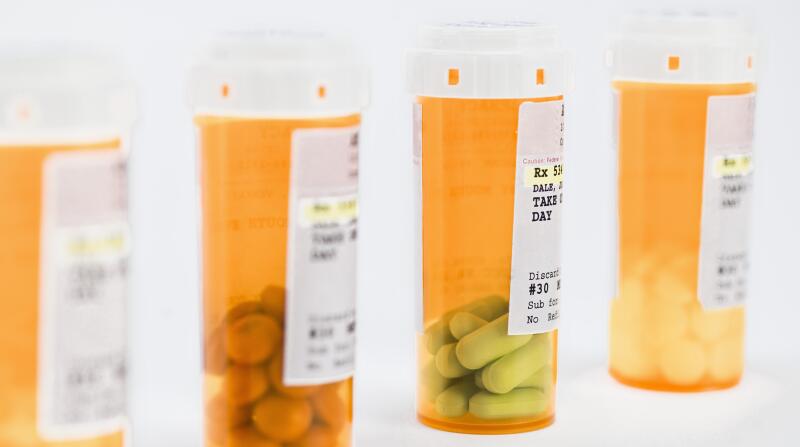Benzodiazepine Addiction: 10 Things Doctors Want You to Know

Medically Reviewed By William C. Lloyd III, MD, FACS
Written By Karon Warren on September 8, 2021
-
 Benzodiazepines must be used with care and under close supervision.Although prescribed frequently, benzodiazepines like Xanax or Valium are not a quick fix for anxiety, seizures, insomnia and other ailments. In fact, due to possible benzodiazepine side effects and the propensity for not only physical tolerance but also possible addiction, benzodiazepine drugs should not be considered for long-term treatment regardless of condition. That’s why doctors are adamant about closely monitoring intake of benzodiazepines to help prevent negative results during treatment. Find out what doctors who treat benzodiazepine addiction want you to know about benzo overdose treatment, benzodiazepine withdrawal symptoms, and how to spot warning signs of benzo addiction.
Benzodiazepines must be used with care and under close supervision.Although prescribed frequently, benzodiazepines like Xanax or Valium are not a quick fix for anxiety, seizures, insomnia and other ailments. In fact, due to possible benzodiazepine side effects and the propensity for not only physical tolerance but also possible addiction, benzodiazepine drugs should not be considered for long-term treatment regardless of condition. That’s why doctors are adamant about closely monitoring intake of benzodiazepines to help prevent negative results during treatment. Find out what doctors who treat benzodiazepine addiction want you to know about benzo overdose treatment, benzodiazepine withdrawal symptoms, and how to spot warning signs of benzo addiction. -
 1. “Benzos should not be the immediate choice for treatment.”Patients should think twice before starting benzodiazepines as their first treatment option, says Dr. Lawrence Weinstein, chief medical officer at American Addiction Centers based in Brentwood, Tenn. “For most patients, benzos should be a second or third line of defense, one that has a clear end in sight,” he says. If your doctor does prescribe benzodiazepines, Dr. Weinstein recommends talking at length with your doctor to learn about all possible side effects and signs of increased tolerance or even addiction. “Education will be the safety net that helps you through a short-term treatment plan.”
1. “Benzos should not be the immediate choice for treatment.”Patients should think twice before starting benzodiazepines as their first treatment option, says Dr. Lawrence Weinstein, chief medical officer at American Addiction Centers based in Brentwood, Tenn. “For most patients, benzos should be a second or third line of defense, one that has a clear end in sight,” he says. If your doctor does prescribe benzodiazepines, Dr. Weinstein recommends talking at length with your doctor to learn about all possible side effects and signs of increased tolerance or even addiction. “Education will be the safety net that helps you through a short-term treatment plan.” -
-
 2. “The risk of benzodiazepine addiction is increasing.”The number of people using benzodiazepines might be higher than you think, which means more patients may be suffering from benzodiazepine addiction. “A 2018 study found that 1 in 8 adults had used benzos in the past year, and 17% of those were misusing the drug,” Dr. Weinstein says. “While purposeful abuse is fairly uncommon, it can take just a few months or less for someone taking benzos to become dangerously addicted.”
2. “The risk of benzodiazepine addiction is increasing.”The number of people using benzodiazepines might be higher than you think, which means more patients may be suffering from benzodiazepine addiction. “A 2018 study found that 1 in 8 adults had used benzos in the past year, and 17% of those were misusing the drug,” Dr. Weinstein says. “While purposeful abuse is fairly uncommon, it can take just a few months or less for someone taking benzos to become dangerously addicted.” -
 3. “Tolerance, dependence and addiction can happen quickly.”According to Dr. Rajy Abulhosn, medical review officer for Confirm BioSciences in San Diego, physiological and psychological dependence can result from benzodiazepine misuse depending on the drug’s potency, its dosage and the length of time it is taken. “For example, alprazolam is highly potent, and, if taken at high doses, dependence can develop in as short as two months,” he says. “With certain other benzos, tolerance occurs at around six months of use.”
3. “Tolerance, dependence and addiction can happen quickly.”According to Dr. Rajy Abulhosn, medical review officer for Confirm BioSciences in San Diego, physiological and psychological dependence can result from benzodiazepine misuse depending on the drug’s potency, its dosage and the length of time it is taken. “For example, alprazolam is highly potent, and, if taken at high doses, dependence can develop in as short as two months,” he says. “With certain other benzos, tolerance occurs at around six months of use.” -
 4. “Tolerance and physical dependence is not the same as addiction.”It’s important to note that having a high tolerance for or physical dependence of benzodiazepines should not be confused with addiction. “Physical dependence occurs when the body adapts to the repeated presence of a drug to the point it can no longer function without it,” says Christy Huff, M.D., director of the Benzodiazepine Information Coalition in Midvale, Utah. If the drug is stopped, withdrawal symptoms occur, which is a normal physiologic response, she says. The same occurs with tolerance. “[Tolerance] is where the body adapts to the current dose of drug, and you need a higher dose to get the same effect,” Dr. Huff says
4. “Tolerance and physical dependence is not the same as addiction.”It’s important to note that having a high tolerance for or physical dependence of benzodiazepines should not be confused with addiction. “Physical dependence occurs when the body adapts to the repeated presence of a drug to the point it can no longer function without it,” says Christy Huff, M.D., director of the Benzodiazepine Information Coalition in Midvale, Utah. If the drug is stopped, withdrawal symptoms occur, which is a normal physiologic response, she says. The same occurs with tolerance. “[Tolerance] is where the body adapts to the current dose of drug, and you need a higher dose to get the same effect,” Dr. Huff says -
 5. “Cognitive impairment and memory problems can result from benzodiazepine use.”With regular use of benzodiazepines, there is a risk of memory and cognitive impairment even when taken in low doses and without addiction. “The primary health concern I discuss with people is regarding cognitive impairment and memory problems,” says Christopher Johnston, M.D., chief medical officer for Pinnacle Treatment Centers based in Mount Laurel, N.J. “With a gradual taper, the cognitive impairment improves, but studies have shown that the risk of dementia later in life is strongly associated with exposure to benzodiazepines. The longer people live, the greater the risk of adverse health effects as the body is slower to eliminate these medications.”
5. “Cognitive impairment and memory problems can result from benzodiazepine use.”With regular use of benzodiazepines, there is a risk of memory and cognitive impairment even when taken in low doses and without addiction. “The primary health concern I discuss with people is regarding cognitive impairment and memory problems,” says Christopher Johnston, M.D., chief medical officer for Pinnacle Treatment Centers based in Mount Laurel, N.J. “With a gradual taper, the cognitive impairment improves, but studies have shown that the risk of dementia later in life is strongly associated with exposure to benzodiazepines. The longer people live, the greater the risk of adverse health effects as the body is slower to eliminate these medications.” -
-
 6. “It’s important to know the possible side effects of taking benzodiazepines.”When considering a treatment that includes benzodiazepines, discuss the negative side to taking these drugs with your doctor. “It is important to be aware of not only the benefits of any medication, but also all the risks, side effects and potential interactions,” says Dr. Jawad Daud, medical director and addiction psychiatrist at Transformations Treatment Center in Delray Beach, Fla. “Side effects can include drowsiness, grogginess, dizziness, impaired movement and coordination, headache, and depression. When mixed with other CNS (central nervous system) depressants like alcohol, barbiturates, opioids and certain types of antidepressants, overdose can occur, which can be fatal.”
6. “It’s important to know the possible side effects of taking benzodiazepines.”When considering a treatment that includes benzodiazepines, discuss the negative side to taking these drugs with your doctor. “It is important to be aware of not only the benefits of any medication, but also all the risks, side effects and potential interactions,” says Dr. Jawad Daud, medical director and addiction psychiatrist at Transformations Treatment Center in Delray Beach, Fla. “Side effects can include drowsiness, grogginess, dizziness, impaired movement and coordination, headache, and depression. When mixed with other CNS (central nervous system) depressants like alcohol, barbiturates, opioids and certain types of antidepressants, overdose can occur, which can be fatal.” -
 7. “Benzodiazepines can be used to treat anxiety, yet anxiety is a symptom of withdrawal.”Oftentimes, benzodiazepines are prescribed to treat anxiety in patients. However, for patients who stop taking benzodiazepines, they may experience anxiety during withdrawal, which can be a cause of confusion. “Since anxiety is a major symptom of withdrawal, patients and prescribers often think they need to continue taking benzodiazepines to treat an anxiety disorder,” says Dr. Craig V. Smith, medical director of Cliffside Malibu in Malibu, Calif. Talk with your doctor extensively to determine the cause of your anxiety to effectively treat it without benzodiazepines.
7. “Benzodiazepines can be used to treat anxiety, yet anxiety is a symptom of withdrawal.”Oftentimes, benzodiazepines are prescribed to treat anxiety in patients. However, for patients who stop taking benzodiazepines, they may experience anxiety during withdrawal, which can be a cause of confusion. “Since anxiety is a major symptom of withdrawal, patients and prescribers often think they need to continue taking benzodiazepines to treat an anxiety disorder,” says Dr. Craig V. Smith, medical director of Cliffside Malibu in Malibu, Calif. Talk with your doctor extensively to determine the cause of your anxiety to effectively treat it without benzodiazepines. -
 8. “Don’t leave your benzodiazepine drugs where others can get to them.”Given the number of people taking benzodiazepines, these drugs are found in many homes, meaning they are easily accessible by others. “Because of their availability in many homes, they can also be used and abused by young people,” says Dr. Sarah Johnson, medical director at Landmark Recovery, which operates locations in Carmel, Ind., Lexington, Ky., and Louisville, Ky. “Benzodiazepines are particularly dangerous when combined with opiates, and the combination is the leading cause of overdose deaths.”
8. “Don’t leave your benzodiazepine drugs where others can get to them.”Given the number of people taking benzodiazepines, these drugs are found in many homes, meaning they are easily accessible by others. “Because of their availability in many homes, they can also be used and abused by young people,” says Dr. Sarah Johnson, medical director at Landmark Recovery, which operates locations in Carmel, Ind., Lexington, Ky., and Louisville, Ky. “Benzodiazepines are particularly dangerous when combined with opiates, and the combination is the leading cause of overdose deaths.” -
 9. “Rehab or detox centers are not good for patients physically dependent on benzodiazepines.”Because physical dependence on benzodiazepines drugs is not the same as addiction, they should be treated differently than other drug addictions that remove patients too quickly from the drug. “The benzodiazepine withdrawal syndrome can be severe and disabling, and abrupt or rapid removal of the drug can raise the risk for neurological injury and a protracted withdrawal syndrome lasting years.” Dr. Huff says. “Instead, patients who are benzodiazepine-dependent should be tapered slowly over the course of months or years, ideally under the supervision of a knowledgeable physician.”
9. “Rehab or detox centers are not good for patients physically dependent on benzodiazepines.”Because physical dependence on benzodiazepines drugs is not the same as addiction, they should be treated differently than other drug addictions that remove patients too quickly from the drug. “The benzodiazepine withdrawal syndrome can be severe and disabling, and abrupt or rapid removal of the drug can raise the risk for neurological injury and a protracted withdrawal syndrome lasting years.” Dr. Huff says. “Instead, patients who are benzodiazepine-dependent should be tapered slowly over the course of months or years, ideally under the supervision of a knowledgeable physician.” -
 10. “Look for alternatives to benzodiazepines.”Talk with your doctor to find out if there are other drugs that can alleviate your medical condition. “Lower-risk drugs, like selective serotonin reuptake inhibitors (SSRIs), do not have the same addictive properties and have a far lower likelihood of abuse,” Dr. Weinstein says. “These medications are primarily used to treat depression, but are also especially useful for patients with chronic anxiety. Non-pharmacological interventions are, of course, the safest route, and can often be incredibly effective.”
10. “Look for alternatives to benzodiazepines.”Talk with your doctor to find out if there are other drugs that can alleviate your medical condition. “Lower-risk drugs, like selective serotonin reuptake inhibitors (SSRIs), do not have the same addictive properties and have a far lower likelihood of abuse,” Dr. Weinstein says. “These medications are primarily used to treat depression, but are also especially useful for patients with chronic anxiety. Non-pharmacological interventions are, of course, the safest route, and can often be incredibly effective.”
Benzodiazepine Addiction: 10 Things Doctors Want You to Know






















